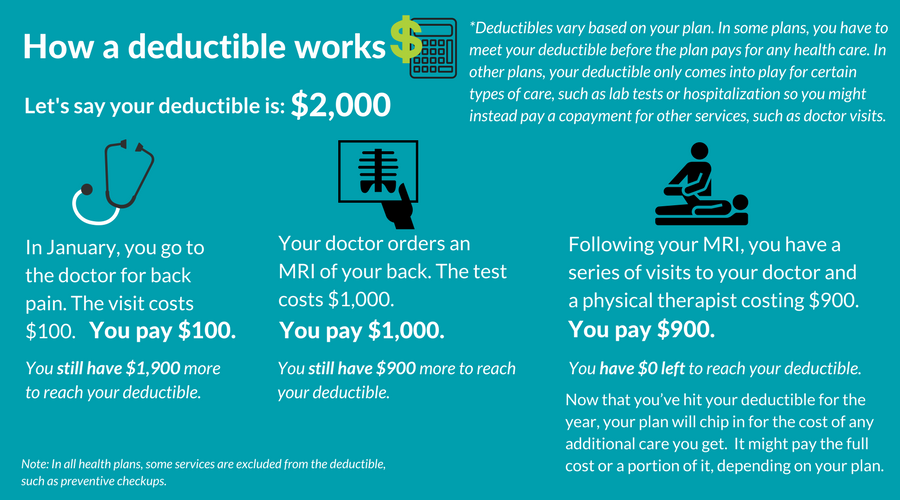What Is Insurance Fundamentals Explained
I have avoided it lot of times, and my number has yet to come up. If it ends up that I need to cancel or interrupt, I'll just have to take my monetary swellings I played the chances and lost. However sometimes it's most likely a good idea to get this coverage for instance, if you're paying a great deal of up-front money for an arranged tour or short-term accommodation rental (both of which are pricey to cancel), if you or your travel partner have doubtful health, or if you have a liked one in your home in bad health. A basic trip-cancellation or disturbance insurance coverage policy covers the nonrefundable monetary charges or losses you incur when you cancel a pre-paid tour or flight for an acceptable factor, such as: You, your travel partner, or a relative can not travel since of illness, death, or layoff, Your tour company or airline company fails or can't perform as guaranteed A relative at home gets ill (inspect the fine print to see how a member of the family's pre-existing condition may impact protection) You miss a flight or need an emergency situation flight for a factor outside your control (such as an automobile accident, harsh weather, or a strike) So, if you or your travel partner accidentally breaks a leg a couple of days prior to your trip, you can both bail out (if you both have this insurance coverage) without losing all the money you spent for the trip.
This type of insurance coverage can be used whether you're on an organized tour or cruise, or traveling independently (in which case, only the prepaid expenditures such as your flight and any nonrefundable hotel appointments are covered). Note the distinction: Trip cancellation is when you don't go on your journey at all. Journey disturbance is when you start a journey but need to cut it brief; in this case, you'll be reimbursed just for the portion of the journey that you didn't complete. If you're taking a tour, it may already come with some cancellation insurance coverage ask - What does comprehensive insurance cover. Some insurance companies will not cover specific airline companies or trip operators.
Make certain your provider is covered. Purchase your insurance coverage within a week of the date you make the first payment on your journey. Policies purchased later than a designated cutoff date normally 7 to 21 days, as identified by the insurance provider are less most likely to cover trip business or air carrier bankruptcies, pre-existing medical conditions (yours or those of member of the family at house), or terrorist events. Mental-health issues are usually not covered. Tense travelers are complaining about 2 big unknowns: terrorist attacks and natural disasters. Ask your company for details. A terrorist attack or natural disaster in your home town might or may not be covered.
Even then, if your trip operator uses a substitute itinerary, your protection might end up being void. When it comes to natural disasters, you're covered just if your location is uninhabitable (for instance, your hotel is flooded or the airport is gone). War or outbreaks of illness normally aren't covered. With travel turned upside down by the coronavirus pandemic, it's more important than ever to understand what travel insurance covers and what it does not. While a lot of standard policies supply protection for flight cancellations and journey disruptions due to unanticipated events, most COVID-19related problems are left out from coverage, including: Worry of travel: If you decide not to take a trip out of worry of contracting COVID-19, your insurance coverage policy will not cover you.
Fascination About What Is Deductible In Health Insurance With Example
Extra COVID-19 break outs: If the location you're preparing to go to experiences new shutdowns after you've reserved the journey, do not seek to your travel insurance coverage for coverage. Breaking federal government travel cautions: If you do have coverage, your policy might be voided if you travel someplace that your government has actually deemed hazardous, or if your government has limited international travel. You might be able to avoid the concern of what is and what isn't covered by purchasing a costly "cancel for any factor" policy (explained below). Health emergency situations are the primary cause for trip cancellations and disturbances, and they can include high medical bills along with prolonged accommodations costs for travel partners.

While many United States insurance providers cover you overseas, Medicare does not. Also, make certain you know any policy exemptions such as preauthorization requirements. Even if your health strategy does cover you internationally, you may want to consider purchasing a special medical travel policy. Much of the extra protection available is supplemental (or "secondary"), so it covers whatever expenses your health insurance does not, such as deductibles. However you can likewise acquire primary coverage, which will look after your expenses approximately a specific quantity. In emergency circumstances involving costly procedures or over night stays, the medical facility will normally work straight with your travel-insurance provider on billing (however not with your regular medical insurance business; you'll likely need to pay up front to the medical facility or center, then get reimbursed by your stateside insurance company later on).
Whatever the scenarios, it's clever to contact your insurer from the roadway to let them understand that you have actually looked for medical help. Numerous pre-existing conditions are covered by medical and trip-cancellation coverage, depending upon when you buy the protection and how recently you've been treated for the condition. If you take a trip often to Europe, multi-trip yearly policies can save you money. Contact your representative or insurance company before you commit. The US State Department regularly concerns cautions about taking a trip to at-risk nations. If you're going to one of these nations, your cancellation and medical insurance will likely not be honored, unless you purchase extra protection.

Compare the cost of a stand-alone travel medical strategy with extensive insurance coverage, which includes great medical and evacuation protection. A travel-insurance business can assist you sort out the alternatives. Particular Medigap strategies cover some emergency situation care outside the US; call the provider of your additional policy for the information. Theft is especially worrisome when you consider the dollar worth of the products we load along. Laptop computers, tablets, cameras, smart devices, and e-book readers are all costly to replace. One method to safeguard your investment is to purchase travel insurance from a specialized company such as Travel Guard, which offers a variety of choices that include protection for theft.
The Single Strategy To Use For How Much Is Mortgage Insurance
It's also smart to talk to your house owners or occupants insurer. Under most policies, your personal effects is currently safeguarded against theft throughout the world but your insurance deductible still uses. If you have a $1,000 deductible and your $700 tablet is stolen, you'll need to pay to change it. Rather than buying different insurance coverage, it may make more sense to add a rider to your existing policy to cover pricey items while you take a trip. Before you leave, it's a great concept to take a stock of all the high-value items you're bringing. Make a list of identification numbers, makes, and designs of your electronic devices, and take pictures that can serve as records.
